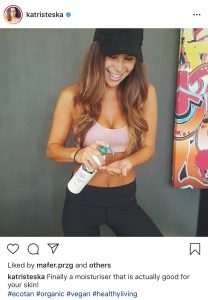Influencer marketing law: How to avoid your savvy marketing campaign becoming a legal nightmare.

Article written by Highview’s good friend Linda Di Trocchoi, Lawyer from Parkston Law.
Social media advertising is a relatively new legal area and can be tricky to navigate. Many more businesses are using influencer marketing, that is getting people to represent their product though Facebook, Snapchat, and Instagram. Influencers have access to a huge number of loyal followers who can be persuaded to buy based solely on the influencer’s recommendations making them a cost-effective marketing strategy, particularly for start-ups. However, there are major legal risks to engaging influencers.
Here’s why:
- Influencers have disclosure obligations
There are legal disclosure obligations both in Australia and internationally. A common mistake is using influencers campaigns without the influencer disclosing it is a sponsored ad. This is contrary to the disclosure obligations required under the Australian Association of National Advertisers Code of Ethics (‘Code). Section 2.7 of the Code provides that:
‘Advertising or Marketing Communication must be clearly distinguishable as such to the relevant audience’.
So, what is ‘clearly distinguishable’?
The International Consumer Protection and Enforcement Network of which the Australian Competition and Consumer Commission (ACCC) recommend that influencers:
- Disclose clearly and prominently whether content has been paid for
- Be open about whether other commercial relationships might be relevant to the content; and
- Give genuine views on markets, businesses goods or services.
The code is a voluntary industry standard administered by the Ad Standards Board (Board). The Board hears consumer complaints and have decided on cases since these new laws were introduced in 2017.
For example, the case of Eco Tan which involved an Instagram post from Kat Risteska, an influencer with over 14,000 followers, promoting self-tanning lotion Eco Tan.

It was claimed Risteska did not clearly distinguish her post as an advertising communication and therefore breached the Code. Eco Tan had sent out free samples to Ms Riteska and asked her to write a review. They argued they had no control over what or if she posted anything. The Board considered even though this post didn’t specifically say it was an advertisement, through the language, use of branding hashtag and the fact that users were directed to Eco Tan’s Instagram page, the audience would be aware this was a sponsored post. On that basis the post was held to be distinguishable and it didn’t breach the Code.
Interestingly, the Code is not binding, and the Board’s decisions are therefore not enforceable even if in breach. However, it is good practice to comply with the Code to avoid the negative publicity of an unfavourable decision and to be compliant with Australian Consumer Law provisions.
2. Set expectations in a formal agreement
You are going to need an agreement to set out license, payment and other key contract terms. There are not many social media influencer form contracts on the internet to help. The templates available are basic and many are clearly not drafted by lawyers.
Your agreement should provide specific performance obligations on the parties such as disclosure hashtags such as #ad, #spon, #sponsored or #advertisement and where those hashtags will be disclosed and how many times.
Your agreement should also cover intellectual property rights including not only ownership and licensing but also that you have permission to repurpose the influencer’s images and posts about your goods and services. If not, this could amount to either a breach of intellectual property rights of the influencer or to misleading and deceptive conduct under the Australian Consumer Law (“ACL”).
3. Check that posts are accurate
Any online representations made by influencers must comply with sections 18 and 29 of the ACL which prohibits conduct in trade or commerce that is misleading or deceptive or likely to mislead or deceive, or that falsely represents a sponsorship, approval or affiliation with another party that does not exist. The maximum penalty for engaging in such conduct for a company is $1.1 million.
Make sure that any post accurately represent the influencer’s opinion on your product or service and clearly identifies the nature of the arrangement with your business.
Influencer Marketing Law: What’s the Conclusion?
Influencer marketing law is still a new area, so it is important to be mindful of the guidance given by authorities such as the ACCC and Australian Association of National Advertisers Code of Ethics. Having a formal agreement in place with full disclosure requirements from your influencers is the best way to ensure your brand reputation remains positive and your business is legally compliant.
Article written by: Linda Di Trocchio, Lawyer from Parkston Lawyers
Get in touch today: www.parkstonlaw.com.au
The contents of this article do not constitute legal advice. They are not intended to be a substitute for legal advice and should not be relied upon as such. You should seek legal advice or other professional advice in relation to any particular matters you or your organisation may have. Parkston Lawyers is able to assist you with all the legal requirements so please do not hesitate to contact us on info@parkstonlaw.com.au or (03) 7001 2108 if you require assistance with legal matters.